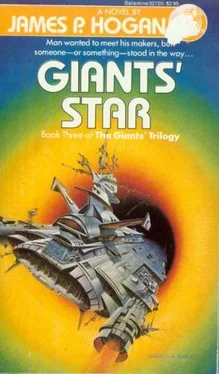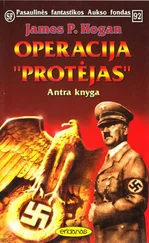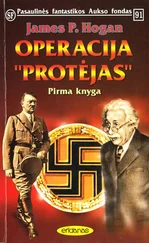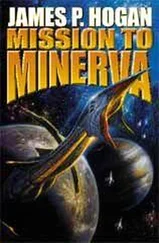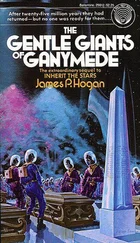James Hogan - Giant's Star
Здесь есть возможность читать онлайн «James Hogan - Giant's Star» весь текст электронной книги совершенно бесплатно (целиком полную версию без сокращений). В некоторых случаях можно слушать аудио, скачать через торрент в формате fb2 и присутствует краткое содержание. Жанр: Фантастика и фэнтези, на английском языке. Описание произведения, (предисловие) а так же отзывы посетителей доступны на портале библиотеки ЛибКат.
- Название:Giant's Star
- Автор:
- Жанр:
- Год:неизвестен
- ISBN:нет данных
- Рейтинг книги:4 / 5. Голосов: 1
-
Избранное:Добавить в избранное
- Отзывы:
-
Ваша оценка:
- 80
- 1
- 2
- 3
- 4
- 5
Giant's Star: краткое содержание, описание и аннотация
Предлагаем к чтению аннотацию, описание, краткое содержание или предисловие (зависит от того, что написал сам автор книги «Giant's Star»). Если вы не нашли необходимую информацию о книге — напишите в комментариях, мы постараемся отыскать её.
Giant's Star — читать онлайн бесплатно полную книгу (весь текст) целиком
Ниже представлен текст книги, разбитый по страницам. Система сохранения места последней прочитанной страницы, позволяет с удобством читать онлайн бесплатно книгу «Giant's Star», без необходимости каждый раз заново искать на чём Вы остановились. Поставьте закладку, и сможете в любой момент перейти на страницу, на которой закончили чтение.
Интервал:
Закладка:
"Sverenssen reappeared in Western Europe in 2009 with a circle of social and financial contacts already established. How that happened is not clear. We can’t find any authenticated traces of him for about ten years before then-in fact from the time he was supposed to have been killed in Ethiopia." Benson gestured at a section of the summary charts of names, photographs, organizations, and interconnecting arrows pinned to a wallboard. "His closest ties were with a French-British-Swiss investment-banking consortium, a big part of which is still run by the same families that set up a network of financial operations around Southeast Asia in the nineteenth century to launder the revenues from the Chinese opium trade. Now here’s an interesting thing-one of the biggest names on the French side of that consortium is a blood relative of Daldanier. In fact the two names have been connected for three generations."
"Those people are pretty tightly knit," Caldwell commented. "I don’t know if I’d attach a lot of significance to something like that."
"If it were an isolated case, I wouldn’t, either," Benson agreed. "But look at the rest of the story." He indicated another part of the chart. "The British and Swiss sides control a sizable part of the world’s bullion business and are connected through the London gold market and its mining affiliations to South Africa. And look what name we find prominent among the ones at the end of that line."
"Is that Van Geelink of the same family as Sverenssen’s cohort?" Lyn asked dubiously.
"It’s the same," Benson said. "There are a number of them, all connected with different parts of the same business. It’s a complicated setup." He paused for a moment, then resumed, "Up until around the first few years of this century, a lot of Van Geelink-controlled money went into preserving white dominance in the area by undermining the stability of black Africa politically and economically, which is one reason why nobody seemed interested in backing resistance to the Cuban and Communist subversions that were going on from the ’70s through ’90s. To maintain their own position militarily in the face of trade embargoes, the family organized arms deals through intermediaries, frequently South American regimes."
"Is this where the Brazilian guy fits in?" Caldwell asked, raising an eyebrow.
Benson nodded. "Among others. Saraquez’s father and grandfather were both big in commodity financing, especially to do with oil. There are links from them as well as from the Van Geelinks to the prime movers behind the destabilization of the Middle East in the late twentieth century. The main reason for that was to maximize short-term oil profits before the world went nuclear, which also accounts for the orchestrated sabotage of public opinion against nuclear power at around the same time. A side effect that worked in the Saraquezes’ interests was that it boosted the demand for Central American oil." Benson shrugged and tossed out his hands. "There’s more, but you can see the gist of it. The same kind of thing shows up with a few more who were on that delegation. It’s one happy family, in a lot of cases literally."
Caldwell studied the charts with a new interest once Benson had finished. After a while he sat back and asked, "So what does it tell us? What’s the connection with what went on at Farside? Figured that out yet?"
"I just collect facts," Benson replied. "I leave the rest to you people."
Packard moved to the center of the room. "There is another interesting side to the pattern," he said. "The whole network represents a common ideology-feudalism." The others looked at him curiously. He explained, "Cliff’s already mentioned their involvement in the antinuclear hysteria of thirty or forty years ago, but there’s more to it than that." He waved a hand at the charts that Benson had been using. "Take the banking consortium that gave Sverenssen his start as an example. Throughout the last quarter of the 1900s they provided a lot of behind-the-scenes backing for moves to fob the Third World off with ‘appropriate technologies,’ for various antiprogress, antiscience lobbies, and that kind of thing. In South Africa we had another branch of the same net pushing racism and preventing progressive government, industrialization, and comprehensive education for blacks. And across the ocean we had a series of right-wing fascist regimes protecting minority interests by military takeovers and at the same time obstructing general advancement. You see, it all adds up to the same basic ideology-preserving the feudal privileges and interests of the power structure of the time. What it says, I guess, is that nothing’s changed all that much."
Lyn appeared puzzled. "But it has, hasn’t it?" she said. "That’s not the way the world is these days. I thought this guy Sverenssen and the rest were committed to just the opposite-advancing the whole world all over."
"What I meant was that the same people are still there," Packard replied. "But you’re right-their underlying policy seems to have shifted in the last thirty years or so. Sverenssen’s bankers provided easy credit for Nigerian fusion and steel under a gold-backed standard that couldn’t have worked without the cooperation of people like the Van Geelinks. South American oil helped defuse the Middle East by leading the changeover to hydrogen-based substitutes, which was one of the things that made disarmament possible." He shrugged. "Suddenly everything changed. The backing was there for things that could have been done fifty years earlier."
"So what about their line at Bruno?" Caldwell asked again, looking mystified. "It doesn’t fit."
There was a short silence before Packard proceeded. "How’s this for a theory? Controlling minorities never have anything to gain from change. That explains their traditional opposition to technology all through history, unless it offered something to advance their interests. That meant it was okay as long as they controlled it. Hence we get the traditional stance of their kind through to the end of the last century. But by that time it was becoming obvious from the way the world was going that if something didn’t change soon, somebody was going to start pressing buttons, and then there wouldn’t be any kind of pond left to be a fish in. The only choice was nuclear reactors or nuclear bombs. So this revolution they made happen, and they managed to maintain control in the process-which was neat.
"But Thurien and everything it could mean was something else. This group would have been swept away by the time the dust from that kind of revolution finally settled. So they cornered the UN handling of the matter and put up a wall until they got some ideas about where to go next." He threw out his hands and looked around the room to invite comment.
"How did they find out about the relay?" Norman Pacey asked from a corner. "We know from what Gregg and Lyn said that the coded signals had nothing to do with it. And we know Sobroskin wasn’t mixed up with it."
"They must have been involved with getting rid of it," Packard replied. "I don’t know how, but I can’t think of anything else. They could have used some personnel of UNSA who they knew wouldn’t talk, or maybe a government or commercial outfit that operates independently to send a bomb or something out there, probably as soon as the first signal from Gistar came in months ago. So what they’ve been doing is stalling things until it got there."
Caldwell nodded. "It makes sense. You’ve got to hand it to them-they almost had it tied up. If it wasn’t for McClusky-who knows?"
A solemn silence descended and persisted for a while. Eventually Lyn looked inquiringly from one man to another. "So what happens now?" she asked.
"I’m not sure," Packard replied. "It’s a complicated situation all around,"
Читать дальшеИнтервал:
Закладка:
Похожие книги на «Giant's Star»
Представляем Вашему вниманию похожие книги на «Giant's Star» списком для выбора. Мы отобрали схожую по названию и смыслу литературу в надежде предоставить читателям больше вариантов отыскать новые, интересные, ещё непрочитанные произведения.
Обсуждение, отзывы о книге «Giant's Star» и просто собственные мнения читателей. Оставьте ваши комментарии, напишите, что Вы думаете о произведении, его смысле или главных героях. Укажите что конкретно понравилось, а что нет, и почему Вы так считаете.
